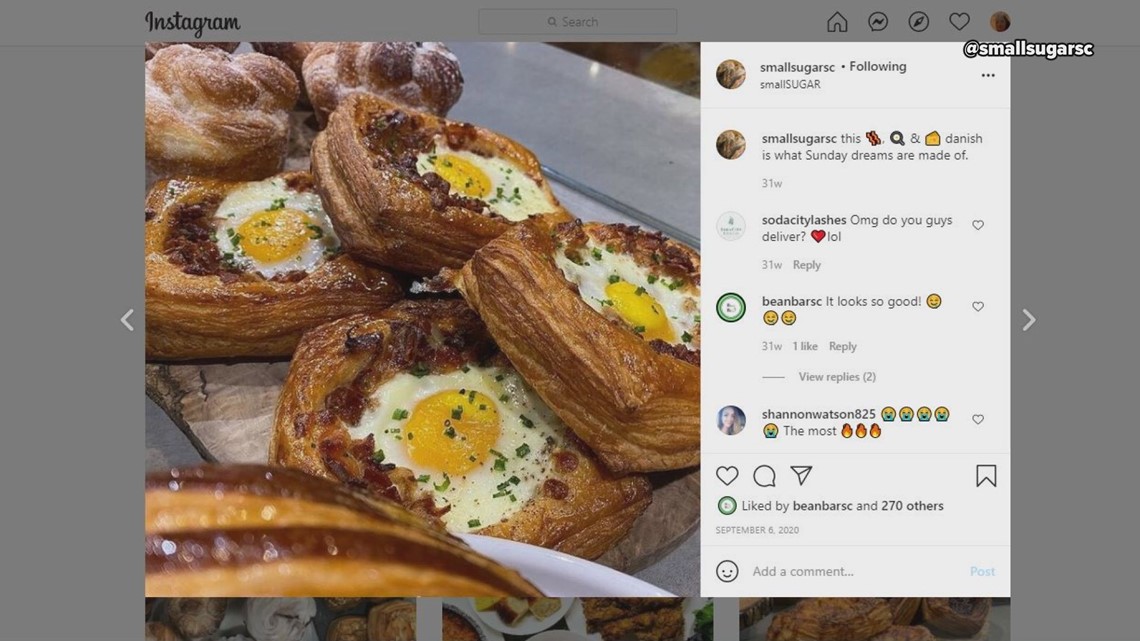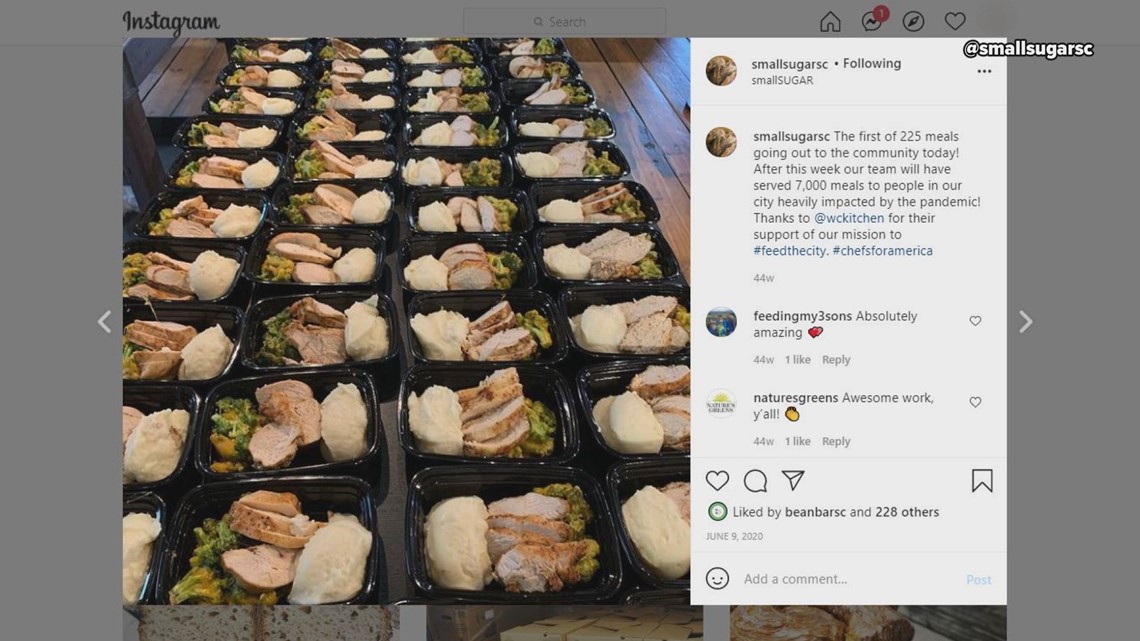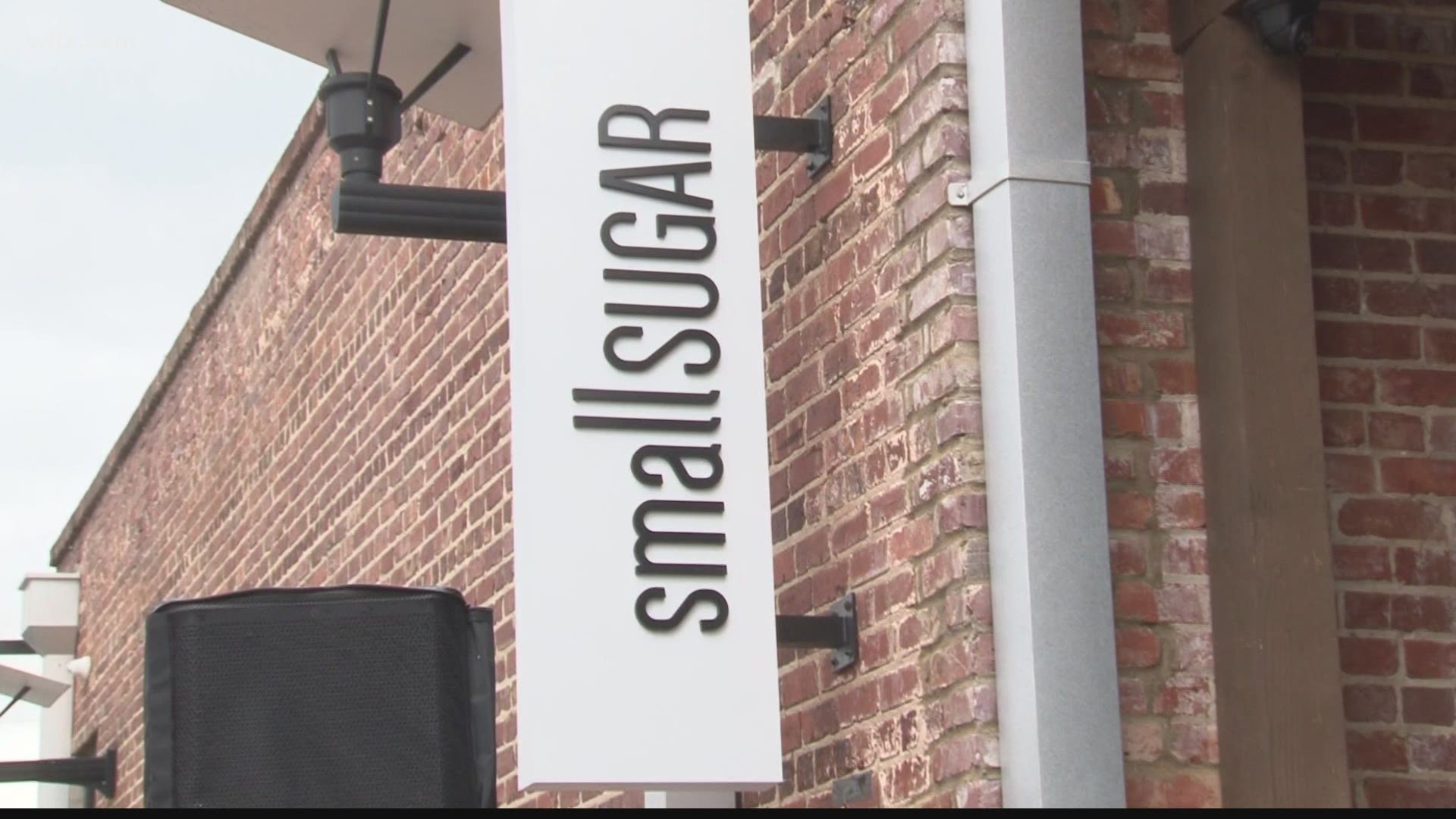COLUMBIA, S.C. — In March 2020, a Columbia business owner was celebrating financial success. Then, the pandemic began and turned everything upside down.
In our series, Surviving COVID: Farm-to-Table, we're taking a closer look at how COVID-19 impacted local farmers and business owners.
This story follows Sarah Simmons, CEO of CITY GRIT Hospitality Group, and how she worked to keep her business alive.
"My husband and I were actually in Europe celebrating the company becoming profitable last February," said Simmons. "We ended up spending that week in Europe outrunning the coronavirus."
CITY GRIT Hospitality Group operates City Grit Catering, smallSUGAR, Il Focolare Pizzeria and the non-profit Feed the City.
For Simmons, one of the biggest struggles during the pandemic is preparing for the unknown.
"It's like changing the wheels on a tractor trailer while you're going down the highway with a blindfold on," she explained. "My personal struggle, aside from the enormous amounts of money that we've lost and the security that we were excited to finally feel after a couple of years of building a business is, how do you lead when you literally have nothing left to give?"
March 10, 2020 Simmons says she sent out a 5-phase plan for their businesses based on the status of COVID-19.
"For the pizza place, we were like, 'At this level we will not reorder wine, we will stop ordering our high-end ingredients'," she explained.
March 18, they reached phase 5 and switched to a family meal takeaway model by March 20.
smallSUGAR in Columbia's Vista is a farm-to-table all-day café. Their menu creations are based on what local farmers produce.


"We would come up with a plan and a set of menus, then all of a sudden those ingredients weren't available," said Simmons. "The disruption in the supply chain was tremendous."
But at the height of the pandemic, many farmers decided not to plant.
Despite the hardships, Simmons still made time to gave back by delivering 10,000 meals to vulnerable community members with the Feed the City campaign last summer.


To this day, she says all employees remained on the payroll.
"We made the decision early because our company, when we rebuilt it, we rebuilt it with the purpose of giving people opportunity and breaking them from the poverty cycle," said Simmons. "So that really meant from us that we could not, unless it was a literal last resort, lay our team off."
Her restaurants are still operating under takeout only, with outside seating.
Simmons says she's also started a new delivery company for her businesses.
Although she lost about 50% of revenue over the past year, she says PPP loans and community support helped her restaurants survive.
"We've figured out how to make some of that up. Not all of it, but enough to keep everyone employed and to keep on keepin' on. We're really looking forward to being able to safely reopen the dining rooms sometime in the future and getting back to business," she said. "I feel like everyone thinks [the pandemic is] over because that's how people are starting to behave. I actually think for us, the next eight weeks is probably gonna be some of the hardest."
To recognize essential workers in our state, USC's School of Music hosted one of their Concert Truck Community Heroes events at smallSUGAR, where employee Greg Padgett was recognized.

